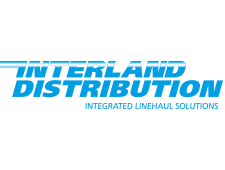LUFIL PACKAGING: Sustainable, Recyclable Packaging Solutions in the Bag
Lufil Packaging supplies a broad and varied range of industry sectors, from industrial and government through to healthcare and pharmaceutical, but has established itself as a market leader in the fast-food or quick service restaurant (QSR) segment. With South Africa finally embracing the shift away from plastic, it falls to Lufil to lead the way in sustainable paper packaging across its ever-growing range of markets and products.
Established more than 35 years ago and originally named after its founder’s son, Luis Filipe, Lufil Packaging was acquired in 2004 by Bidvest and now operates under Bidvest Packaging, a division of Bidvest Data, Print & Packaging (BDPP) and part of Bidvest Paperplus.
The international services, trading and distribution, Bidvest operates on four continents and employs 104,000 people worldwide, but with roots which remain staunchly South African. Created from companies previously part of other Bidvest divisional structures, BDPP has made a number of strategic acquisitions that have positioned it among southern Africa’s leading suppliers of printing, data, packaging and labelling solutions.
STRATEGIC MARKETS
Now one of South Africa’s leading manufacturers of printed and plain paper bags and associated packaging products, Lufil has conquered a number of new territories of its own in its three decades of expansion, according to Managing Executive Stephen Weston. “We have nearly 250 full-time employees, when factoring in our factory, warehouse and head office at Linbro Business Park in Sandton, Gauteng, and distribution centres in Cape Town, Pinetown and Port Elizabeth. This footprint ensures that we have a strong national presence, servicing customers throughout the country.”
Lufil supplies a diverse and varied range of industry sectors, from industrial and government through to healthcare, pharmaceutical and retail. “Our core business is anything that pertains to paper conversion and flexible packaging, such as bags, sheets and napkins,” says Weston. “Our markets are very strategic, and in South Africa we have established ourselves as a leading supplier to quick service restaurants (QSR) and deliver to home restaurants.”
Lufil’s own growth has followed that of one of South Africa’s thriving industries, which has experienced a sudden surge in popularity and importance. South Africa is the largest foodservice market in the sub-Saharan Africa with a large and highly competitive hospitality industry, and its fast food market size was valued at $2.7 billion in 2018, expected to reach $4.9 billion by 2026 to register a CAGR of 7.9%.
“The fast food and QSR sectors account for around 60% of our business, adding all of the paper bags, sheets and napkins together, which a lot of the brands we supply into also make use of,” Weston notes. “However, as more and more brands are deciding to cease the use of plastic bags and containers we are seeing phenomenal growth within the retail sector, too. We started working with Checkers, and have jointly developed packaging for their e-commerce platform. Their use of our bags to deliver their 60-minute grocery delivery service has been a huge coup for us.”
A number of suppliers have been integral to broadening unlocking these opportunities for Lufil, Weston is keen to stress. “Sappi South Africa has been one of our key partners,” he states, of a giant with nearly a century of serving South African consumers with locally produced paper behind it. “They open up to us a vast range of different products, and their international footprint is a massive boon, as they can access certain grades of paper which are not available here in South Africa.
“Mpact is another integral supplier, one of the leading paper and plastics packaging manufacturing businesses in southern Africa which also partners with us, providing the paper in our Checkers shops.” Crucially, Mpact is also southern Africa’s leading recycler of recovered paper and plastic aligning perfectly with Lufil’s own unwavering environmental focus.
While QSR and retail might be considered Lufil’s core, specialist markets, these are diversifying all the time, says Weston. “Even the sectors within retail are still growing,” he describes, “for example in supplying products to be used in delis, like chicken bags and wraps. In an entirely new move for us, as well, we now produce a seasonal bag for agriculture, which fits over corn in the field to prevent cross-pollination during growth. This is a very novel and exciting development for us, and brings us orders all through the rainy season from research farms wishing to retain seed in their operations.”
In addition to all of these key South African markets even the pharmaceutical sector is covered, Weston adds, with a suite of carry-out and shopping bags employed by some of the country’s leading players. The wrapped toothpick represents a further development and branching out for Lufil, and, like the napkins and sheets in the QSR business, is another complementary element to its existing loyal users.
“This is a category that we inherited from other Bidvest sister companies a couple of years ago,” he relays. “The process sees us sterilise and individually wrap the toothpicks on site, and we are then able to sell these on to brands we currently supply. This is one of a number of unusual things that we do, but it works for us because although the manufacturing process is slightly different, ultimately the delivery point is that same, existing customer – we already have a truck distributing to Nando’s, for example, and this forms an ideal bolt-on.”
SUSTAINABILITY
Historically, sectors like retail and fast food, while affording Lufil marvellous opportunities to diversify and grow, are tarnished with a reputation for excess waste, one that neither has been able to shed fully. The lingering image is of a South African urban landscape almost defined by torn and shredded plastic shopping bags blocking gutters and clinging to fences and building walls, a problem only partially addressed by the introduction of thicker plastic bags at all shopping outlets. The only way to successfully combat the scourge of plastic bags is to stop using them, and Lufil is leading the sustainable charge in its key markets.
“As South Africa’s leading supplier of paper bags, sustainability is absolutely key for us,” asserts Weston. “We offer a comprehensive range of environmentally-friendly solutions, and many large national retailers now supply our range of paper shoppers over plastic alternatives.
“The mills from which we procure our material are all Forest Stewardship Council (FSC)-accredited,” he continues, whose objective it is to promote responsible management of the world’s forests that is environmentally appropriate, socially beneficial and economically viable.
Environmentally appropriate forest management ensures that the harvest of timber and non-timber products maintains the forest’s biodiversity, productivity, and ecological processes, while socially beneficial forest management helps both local people and society as a whole to enjoy the long-term benefits.
“It ensures that no indigenous forestry or trees are chopped down in order to produce paper,” Weston says of its application in Lufil’s modus operandi, “and that that which is used is renewable and sustainable. Ensuring that it is in place in an unbending commitment for us, and this is also true of recyclability and compostability across our product range.
“We are committed to preserving our environment, which is why all of our products are recyclable and compostable.” It feels very much like change might be afoot, from what Weston details of what is taking place in the country. “For the first time ever in South Africa we are going through a process which sees government involved with what actually happens to the end product,” he tells us. “As a result, companies will be billed, or pay a levy, according to the type of product that is going into landfill or being recycled.
“It has taken a very long time for people in South Africa to make the change to paper from any alternative,” Weston furthers, as the country follows so many others in Africa which have already abandoned single-use plastic. “Paper is clearly and proven a markedly better environmental option, so we are hopeful that this renewed assistance from government will only accelerate this shift.
“People and brands, and especially top brands, are now making a conscious decision to change, which is obviously good for us but also for the whole country,” Weston summarises of this incredibly exciting time to be a sustainable leader in an industry undergoing great transformation. “We are proud of our track record, and in the future we will continue to implement policies that have a positive impact on the environment as our paper packaging solutions play an increasingly vital role in so many of the country’s most vital industries.”


